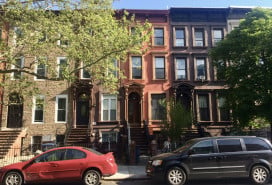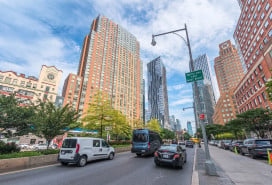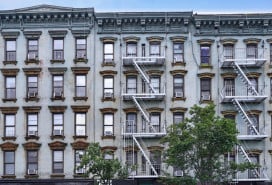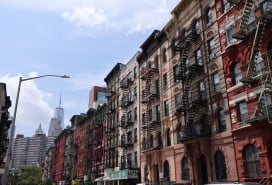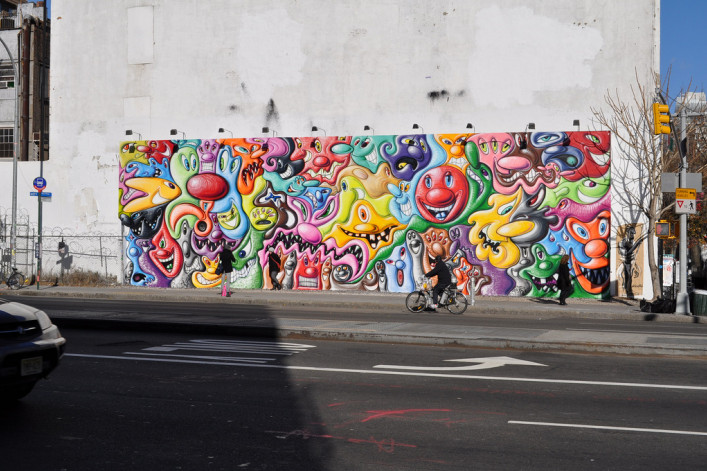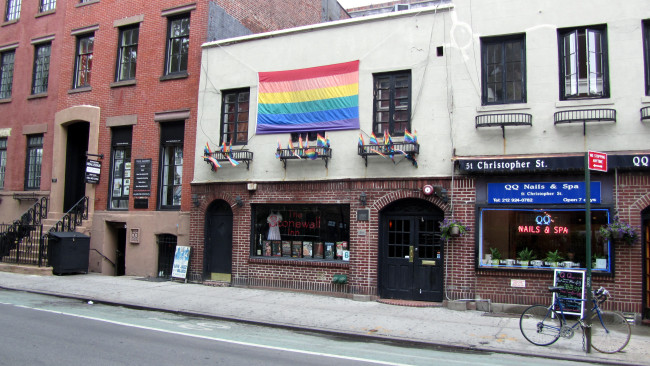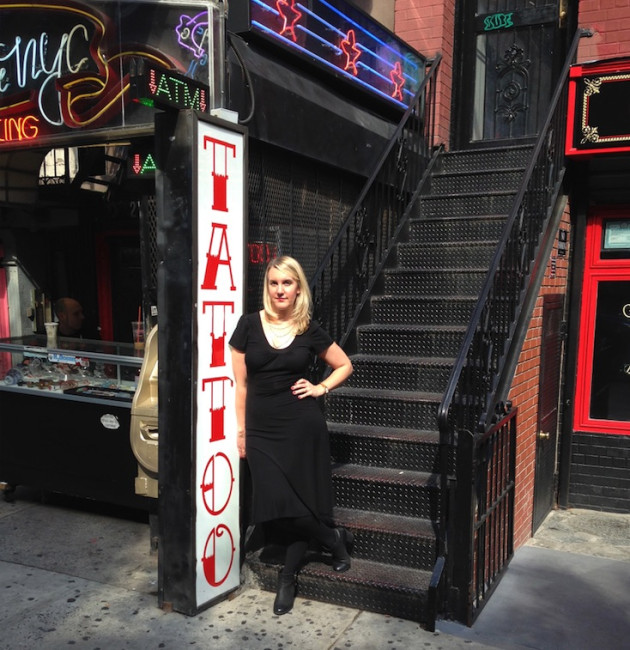Should NYC's arts community give up on the city altogether?
You've likely heard some version of it before: "Move to Detroit!" "Move to L.A.!" Even Patti Smith famously warned artists, "New York City has been taken away from you [...] Find a new city." (And rents have only gone up since she made that pronouncement back in 2010.) So, should you?
While the question of whether to leave the city has often loomed large for families seeking space and affordability, as prices have continued to spike while our affordable housing crisis gets worse by the day, there's been a steady drumbeat of stories about whether or not there's any place left for artists looking to live and work in the city. Sure, talent has traditionally flocked to New York for opportunity and inspiration, but what happens when the creative class (that is, those in the creative class who don't have trust funds) can no longer find a place to feasibly live?
The exodus
"Honestly, don't move to New York," advises Rosie, 29, a native Brooklynite who moved to Chicago in search of big city living that didn't require working six jobs to make rent. "Move somewhere smaller, move somewhere cheaper, move somewhere cooler where the cool is less prepackaged. The New York that I grew up in, to the best of my knowledge, is a place that no longer exists. The city is tired." (Further incentive: She now has a room in a huge three-bedroom in one of the Chicago's nicer neighborhoods for under $500/month.)
There have been several high-profile departures of late, with Dumbo's Galapagos Gallery picking up stakes and heading for Detroit, and the couple behind Bay Ridge's well-loved Robicelli's Bakery admitting they'd grown to "hate" the grind of NYC's food industry and announcing a move to Baltimore. (And let's not forget all of Moby's publicly expressed thoughts on why Los Angeles is better.) Add the fact that seemingly the entire comedy industry—once a New York maintsay—has moved west, save for a few stalwart holdouts, and the "New York is dead!" proclamations can seem all too real.
The ones who stay behind (and keep moving in)
On the flip side, young people ("creative" or otherwise) keep moving here. The Upshot reported on a 25 percent increase in recent graduates moving to the city between 2000 and 2012. (Nonetheless, as millenials flock to urban centers all over the country, our relative increase wasn't as steep as it was in cities like Austin, Portland, Los Angeles, and Pittsburgh.) And, per Bloomberg, U.S. census numbers showed that between 2000 and 2012, the number of "artists" in the five boroughs jumped from 109,000 to 141,000.
We spoke to the founders of a Detroit Write a House—a program that offers writers a home in Detroit, and space to work—to see if their applications indicate an exodus of housing-hungry New York writers. And while they had lots of applicants from New York state (and in particular, from within the five boroughs), more applications were flooding in from Michigan and California. In fact, the only demographic that can be reliably found to be clearing out of New York is retirees.
"There is clearly space for a certain kind of 'creative' in the city (and that use of the term now encompasses tech workers or entrepreneurs)," says Jeremiah Moss of Jeremiah's Vanishing New York. "But for the people we used to call 'bohemians'—artists, musicians, writers, dancers, who don't have financial backing from families—that's a whole other class of people who no longer have space in the city."
Moss continues, "In particular, you often see young, queer, creative people moving into neighborhoods like Bed-Stuy, Ridgewood, Jackson Heights, even East New York, where unfortunately, they're also helping to gentrify them. It's not their fault that developers follow. But they used to be able to go to a neighborhood like Williamsburg and live for 10 or 20 years before developers caught on, but now it takes five seconds, and they get pushed farther and farther out, and won't be able to stay here in the long term."
But then again, New York's arts community has hardly been reduced to a flock of well-to-do liberal arts grads who staff tech startups and write sponsored content for cushy salaries. Veteran Brooklyn promoter and venue owner Todd P recently told the New York Observer that in spite of a rash of recent closures (Death By Audio and Glasslands, most notably), there are "still more venues in NYC offering thought-provoking live music now—and run by smart people with progressive ideas—than in any other city in the world. And there are more great unique venues in the city right now than at any other point in New York City history."
Moss also notes, "I do see a lot of younger people living in co-operative housing, where they rent a house way out in Brooklyn and there are 9 million kids there, and they're doing interesting things because they have artists' collectives and co-operatives. And I think a lot of that is still really under the radar."
Decision time
So clearly developers and post-Bloomberg-era housing prices haven't managed to stamp out the city's arts scene, or stem the tide of eager young people willing to take a crack at making it work here. Instead, the question becomes whether those same people will be able to stay here in the long-run, and as smaller cities become increasingly vibrant, if it's worth it to try. And ultimately, that comes down to a matter of personal preferance (and frankly, stamina), though anyone you ask will have their own opinion, slightly different than that of the last person you asked.
"Selfishly, I would love to see activists, artists, young people come to New York and save it from itself, instead of abandoning it for other cities," says Moss. "But can they live better in other cities like Philly or Detroit? Absolutely." But if everyone picks up and heads to cheaper digs, he says "that would mean New York is really over as a cultural capital, and that's unfathomable and tragic." (Though a lot of the city's culture class has not only left already, but also made a big public show of doing so).
On the flip side, while Rosie advises "moving somewhere where you can making things happen without spending all your time scraping and hustling to make ends meet," she adds, "Admittedly, part of that is selfish, because I have a dream that at some point, I can move back to Brooklyn and afford to live the kind of life I would want."
**This article was first published on July 14, 2016.**
You Might Also Like

